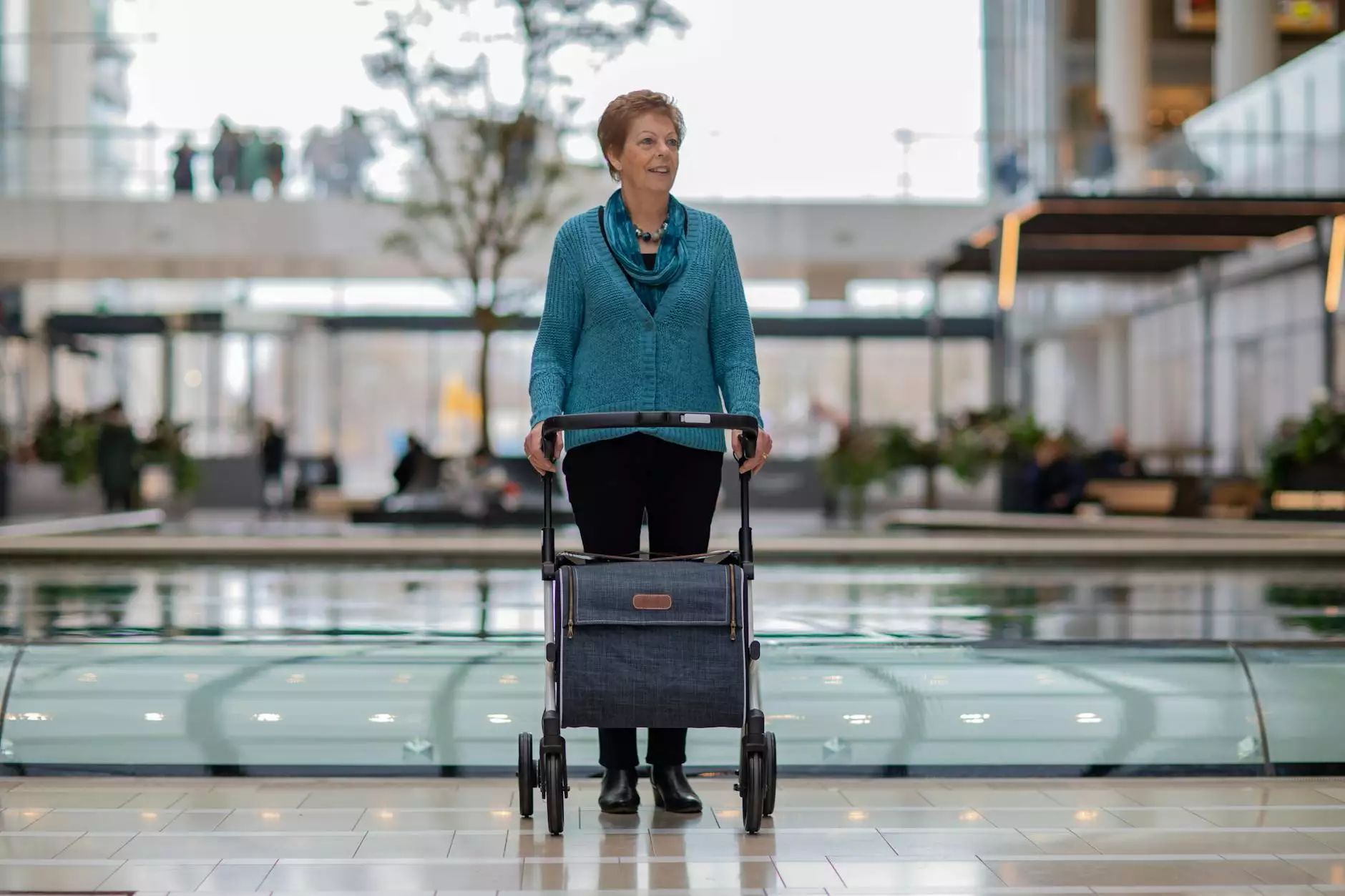Understanding **Primary Care Geriatrics**: The Backbone of Elderly Healthcare

As our population ages, the importance of specialized health services tailored for the elderly becomes increasingly evident. Primary care geriatrics bridges the gap between general health services and the unique needs of older adults, ensuring they receive comprehensive and compassionate care. In this article, we delve deep into the world of geriatrics, highlighting its significance, challenges, and the commitment of organizations like Star Medical in providing exceptional healthcare for seniors.
The Essence of Geriatric Care
Geriatric care focuses specifically on the health issues and medical conditions that older adults face. This care paradigm acknowledges that as individuals age, they often experience a multitude of health concerns, requiring a multi-faceted and holistic approach to treatment. Here are some core elements that define primary care geriatrics:
- Comprehensive Assessments: Geriatricians conduct thorough evaluations, considering medical history, mental health, medications, and social factors that impact well-being.
- Chronic Disease Management: Many older adults live with chronic conditions like diabetes, heart disease, and arthritis that require ongoing management.
- Medication Management: Older adults often take multiple medications, necessitating careful oversight to prevent interactions and complications.
- Coordination of Care: Geriatricians play a pivotal role in helping coordinate care across various specialists, ensuring that all health aspects are addressed.
- Focus on Quality of Life: Ultimately, geriatric care aims to enhance the quality of life, promoting independence and functionality in daily activities.
Why is Primary Care Geriatrics Essential?
With the increasing number of older adults, primarily due to advancements in healthcare enabling longer life spans, the prevalence of age-related health issues is on the rise. Here’s why primary care geriatrics is crucial in the contemporary healthcare landscape:
1. Tailored Care for Unique Needs
Older adults often suffer from conditions that require specialized knowledge and a more nuanced treatment approach. Geriatricians are trained to address these unique needs, from cognitive decline to mobility challenges.
2. Prevention and Early Detection
Routine geriatric assessments can lead to early detection of diseases, which is vital in effective management and treatment plans. Preventative care is a cornerstone of healthy aging, allowing for early interventions that can significantly improve health outcomes.
3. Improved Health Outcomes
Studies show that older adults receiving specialized care in geriatrics have better health outcomes, reduced hospitalization rates, and longer life expectancy. This approach not only benefits the patients but also alleviates pressure on healthcare systems.
4. Supporting Families
Primary care geriatrics also provides crucial support to family members and caregivers. Geriatricians can help families navigate the complex healthcare systems, ensuring they understand the needs of their loved ones and how to best provide care.
The Role of Star Medical in Geriatric Care
At Star Medical, we recognize the critical role that primary care geriatrics plays in modern healthcare. Our mission is to deliver high-quality, specialized care to seniors, ensuring they maintain their dignity and quality of life. Here are some of the ways we are making a difference:
Innovative Care Models
We utilize innovative care models that integrate various health services, allowing for comprehensive treatment plans tailored to individual needs. Our team collaborates seamlessly to provide coordinated care that addresses every aspect of elderly health.
Experienced Professionals
Our staff includes geriatricians, nurses, and healthcare professionals with extensive experience in geriatric care. Their expertise ensures that our patients receive informed, nuanced, and compassionate treatment. Continuous training and education keep our team at the forefront of developments in the field.
Patient-Centric Approach
Our philosophy revolves around a patient-centric approach, emphasizing active participation from patients and their families in care decisions. We believe that informed patients are empowered patients.
Community Outreach and Education
Star Medical is committed to community outreach, offering educational programs and resources designed to empower older adults and their families. We host workshops and seminars focused on health management, healthy living, and navigating the healthcare system effectively.
Challenges in Geriatric Care
Despite its importance, primary care geriatrics faces several challenges that need attention. Understanding these challenges is vital to developing strategies that ensure the best outcomes for older adults:
1. Shortage of Geriatric Specialists
One significant issue is the shortage of healthcare professionals specializing in geriatrics. This scarcity can lead to inadequate care and longer wait times for patients seeking specialized services.
2. Fragmented Care Systems
Older adults often interact with various specialists, leading to fragmented care if not properly coordinated. Ensuring all health aspects are aligned requires dedicated effort and planning.
3. Resistance to Change
Healthcare providers may sometimes resist updating practices based on new research or innovations in geriatric care. Keeping abreast of the latest methods and techniques is crucial for effective patient care.
The Future of Primary Care Geriatrics
The future of primary care geriatrics holds exciting possibilities. As healthcare technology advances and our understanding of aging improves, several trends are emerging:
1. Telemedicine Integration
Telemedicine is playing an increasingly crucial role in primary care geriatrics. Virtual consultations offer convenience, enable regular monitoring, and increase access to specialist care, particularly for those with mobility issues.
2. Personalized Medicine
With advances in genetics and personalized medicine, treatments can be increasingly tailored to individual health profiles. This customization will significantly enhance treatment effectiveness and patient satisfaction.
3. Community-Based Programs
More healthcare organizations are developing community-based programs that cater specifically to older adults' needs outside traditional clinical settings, promoting active aging and integration within communities.
Conclusion
Primary care geriatrics is not merely about treating diseases; it is about enhancing the quality of life for older adults, ensuring they receive the comprehensive care they deserve. At Star Medical, we are dedicated to leading the charge in providing exceptional geriatric care, driven by a commitment to excellence and compassion. As we look to the future, it is our mission to continuously elevate standards and redefine what elderly care can—and should—be.
In a world where age is often a barrier, let us strive to create an environment where older adults can thrive, receive quality healthcare, and enjoy the finest years of their lives.



